The Startling Rise of India’s #MeToo Movement
A kind of critical mass has been reached in India following years of activism and calls for change and accountability, and high-profile men are starting to face consequences for sexual misconduct.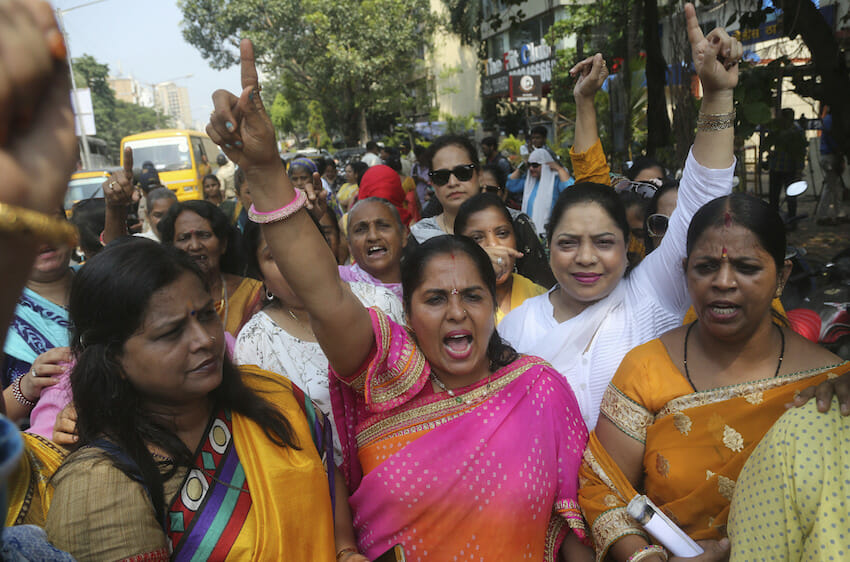 Activists shout slogans against Bollywood actor Nana Patekar during a protest in support of former actress Tanushree Dutta in Mumbai, India, on Oct.11. (Rafiq Maqbool / AP)
Activists shout slogans against Bollywood actor Nana Patekar during a protest in support of former actress Tanushree Dutta in Mumbai, India, on Oct.11. (Rafiq Maqbool / AP)
The world’s largest democracy is finally having its own #MeToo moment. Just about a year after the Harvey Weinstein revelations opened the floodgates of assault accusations in the United States, India has been rocked by scandal after scandal over the span of a few weeks, arising from accusations made by women of sexual assault and harassment that are finally being taken seriously. As here in the U.S., it remains to be seen if this is a movement or a moment (to borrow a phrase associated with Black Lives Matter).
For decades, Indian women have been protesting pervasive sexism, from street-level harassment, known by the inappropriate term “Eve-teasing,” and Bollywood’s “casting couch” to the two high-profile cases of brutal gang rapes that made international headlines in 2012 and 2018. But now, many women are feeling emboldened to come forward with their accounts of incidents that they have remained silent about for years. And some men are feeling the consequences of their actions in the form of public shaming and the loss of their jobs and positions—a similar phenomenon to what has unfolded in the U.S. over the past year.
The trend in India is so strong that last week the search engine Google released an interactive map of where the phrase “Me Too” was most searched for on the planet, and CBS reported that according to the map, “All of the top five cities trending for #MeToo searches were located in India, with the depiction of the country glowing brighter than any other location on the map.”
Shonali Bose is an award-winning filmmaker, director, screenwriter and producer whose work is driven by her fierce political activism. Her acclaimed movies “Amu” and “Margarita With A Straw” are both women-centered films that deal with trauma and joy. Her forthcoming release, “The Sky is Pink,” stars Priyanka Chopra, whom American audiences will recognize from her role on the television show “Quantico.”
In an interview from Mumbai, India, where she is now based, Bose shared with me her surprise at how quickly things have unfolded over the past several weeks. “This speaking out suddenly is brand new. This has never happened before,” she said.
Just as Bose was in talks with her colleagues about how to support women who have experienced sexual assault and harassment in the industry, several stories began to break. Along with several other high-profile women directors and actors, including Konkona Sen Sharma, Nandita Das, Zoya Akhtar and Kiran Rao, Bose signed onto a strongly worded statement pledging “complete solidarity with the women who have come forward with honest accounts of harassment and assault” and, importantly, promising “to not work with proven offenders.”
One of biggest scandals to emerge involves an incident that took place 10 years ago on the set of a Bollywood film. A young actress named Tanushree Dutta—new to the industry—spoke out about being molested on the set of a film by Nana Patekar, one of India’s most distinguished and celebrated actors—a man I remember watching onscreen as a child in many of India’s so-called “art films.” By Dutta’s account, Patekar took advantage of her on set, and when she refused to cooperate, he used his connections in a local fundamentalist political party to call an angry mob to intimidate her and physically attack her car as she tried to leave the set with her parents. The experience left her deeply traumatized and forced her out of the film industry—and even the country.
Dutta has spoken out about her experiences for years, and as recently as late September held a press conference, saying, “I had to walk away from the industry out of fear, trauma. I was afraid to come on a movie set.” After Patekar sent her a legal warning in early October against publicizing her experience, the story finally began making serious headlines and is being seen as part of the #MeToo narrative. In an interview with BuzzFeed, Dutta said, “It’s not as though I ever stopped talking about it; I’ve been repeating the same story since 2008. The only thing that’s changed is that people suddenly want to listen.”
Several women have also accused longtime “Indian Idol” music director and co-judge Anu Malik of sexual harassment. Malik’s case is particularly abhorrent in that he stands accused of preying on multiple teenage girls for years, using his power the way Weinstein did in the U.S. to make or break careers. In the wake of the revelations, Malik was forced out as “Indian Idol” judge—a position he held for more than a decade.
Another major scandal is the accusation against filmmaker Vikas Bahl by an unnamed female employee of his highly successful company, Phantom Films. Huffington Post India, which broke the story Oct. 6, reported: “Bahl, the woman crew member said, insisted on dropping her to her hotel room on the early hours of 5 May 2015 and pretended to pass out drunk on her bed, only to awaken soon after and masturbate on her.”
Ironically, Bahl is best known for directing “Queen,” a film with a strong female lead, focused on her journey toward independence from a man. Some months after the incident, the woman in question informed one of the other directors at Phantom, Anurag Kashyap, but he failed to take action. The company went on to achieve major successes, including making the series “Sacred Games” for Netflix. But since the story became public, Phantom films has abruptly dissolved, and Kashyap acknowledged that he “failed” the accuser.
India’s most popular comedy group, All India Bakchod (AIB), has also fallen off its pedestal in the era of #MeToo. With more than 3.4 million subscribers to its channel, AIB cut its teeth on digital platforms like YouTube, making edgy and comedic social satire that often questioned India’s sexist traditions. But in the wake of revelations that one of the group’s members did not act on information about a fellow comedian’s sexual harassment, and allegations that another of the group’s members harassed a woman, the group’s future is in jeopardy.
In its many years of tackling the scourge of street-level harassment and violent rapes that make the news, the Indian feminist movement had not fully confronted the hypocrisy of forward-thinking and supposedly progressive or feminist men who shape pop culture like Bahl, his colleagues at Phantom Films, AIB and others. But now the dam has burst, and the #MeToo stories have broken in India in the span of just a few days.
The accusations are not restricted to the entertainment industry. A prominent journalist-turned-lawmaker named MJ Akbar was forced to resign from his position last week as minister of state for external affairs after being accused by 16 different women of sexual harassment when he was a newspaper editor. Rahul Johri, the head of India’s powerful cricket board, has just been put on leave while an accusation made against him is being investigated, and so on.
Bose included a warning in her conversation, however. “You have to be very, very careful,” she said. “Let’s not minimize women who have actually survived assaults saying anything about anyone—because that really brings the whole movement down.” She cited some rumors against prominent men that were questionable and could undermine the movement for women’s rights. Given Indians’ tendency to veer toward extreme vengefulness against accused rapists—as the angry calls for the death penalty have shown—there is a lot at stake as the stories come tumbling out into the open, one after another.
Bose says India’s film industry must take some responsibility for the pervasiveness of sexual assault. Just as Hollywood movies normalized rape culture, Indian cinema is replete with titillating scenes that veer dangerously close to normalizing stalking, coercion and rape. “What we can do as filmmakers [is] … push back to our male counterparts, to our producers and say, ‘change the kind of content you finance,’ ” she told me. Bose has experienced firsthand the resistance from a male-dominated film industry intent on reproducing sexist stereotypes, saying, “It’s not that I have faced discrimination because I’m a woman. My stories have faced discrimination because they are women-led.”
India is brimming with women leaders who have led, and are leading, movements for gender equality, and not just in urban centers. Just as Tarana Burke is the unsung hero of the U.S. #MeToo movement, a women’s rights activist based in India’s rural northwest state of Rajasthan, Bhanwari Devi, has now been credited with being the mother of India’s #MeToo movement. And in the past week, Rehana Fathima, a young activist, has been spotlighted for leading the fight to allow women the right to enter a sacred temple in Kerala.
There are countless others like them in the world’s largest democracy, fighting for their right to be seen, heard and respected, and offering the strong possibility that India’s #MeToo chapter will be part of an ongoing movement.
Your support matters…Independent journalism is under threat and overshadowed by heavily funded mainstream media.
You can help level the playing field. Become a member.
Your tax-deductible contribution keeps us digging beneath the headlines to give you thought-provoking, investigative reporting and analysis that unearths what's really happening- without compromise.
Give today to support our courageous, independent journalists.

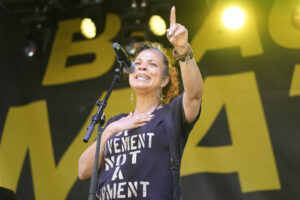
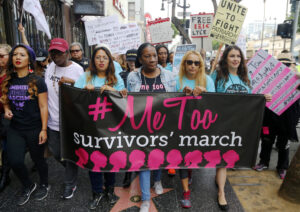

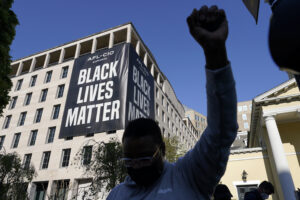
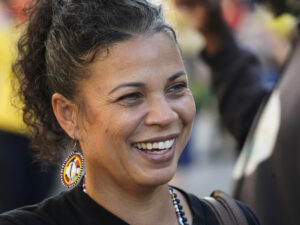


You need to be a supporter to comment.
There are currently no responses to this article.
Be the first to respond.